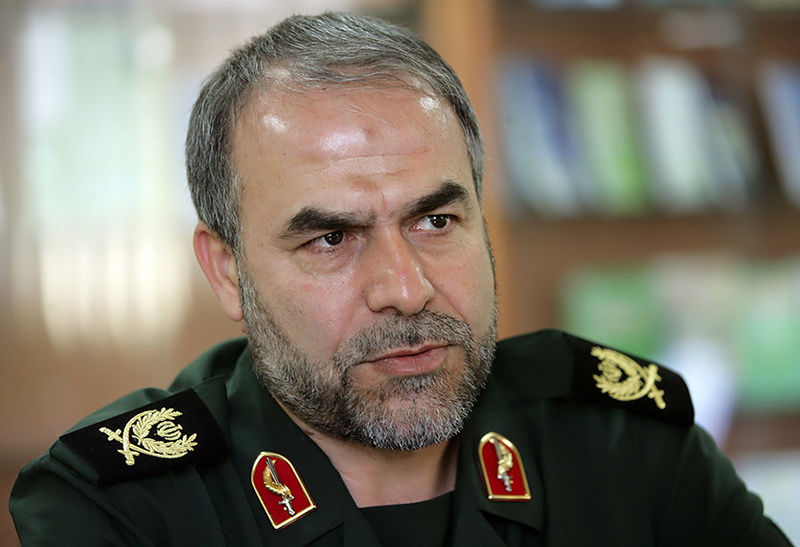ALWAGHT- The IRGC’s political deputy cautioned against the potential consequences of the Trump Corridor, which was recently agreed upon by Armenian and Azerbaijani leaders during their meeting at the White House.
In his statement titled “Aliyev and Pashinyan on Zelensky’s Road to Misery,” Brigadier General Yadollah Javani, the IRGC deputy commander for political affairs, sharply criticized the recent agreement reached between the leaders of Armenia and Azerbaijan at the White House, commonly referred to as the “Trump Corridor.” Javani warned that this agreement risks dragging powerful global players such as the United States, the United Kingdom, and NATO into the sensitive Caucasus region, a move he considers both reckless and dangerous.
Javani argued that if Presidents Ilham Aliyev and Nikol Pashinyan had carefully weighed the long-term geopolitical consequences of inviting Western military and political influence into the Caucasus, they would have avoided falling prey to what he described as the “gambler” tactics of former President Donald Trump. According to Javani, the two leaders were swayed by the promises and incentives offered by the US, alongside backing from the Zionist regime and several European countries, without adequately considering the regional balance of power and the interests of neighboring nations.
Highlighting the folly of their approach, Javani compared Aliyev and Pashinyan’s decisions to Ukrainian President Volodymyr Zelensky’s controversial invitation to NATO forces to enter Russia’s traditional security zone, a move that precipitated Russia’s military operations in Ukraine. Javani noted that Zelensky’s strategic misstep has resulted in severe and irreversible damage to Ukraine’s sovereignty and territorial integrity, a cautionary example of the dangers posed by reckless geopolitical maneuvers.
However, Javani stressed that the mistakes made by the Armenian and Azerbaijani leaders are even more consequential. While Zelensky’s error antagonized only Russia, the pact made by Aliyev and Pashinyan in the White House has the potential to antagonize multiple influential regional actors, thereby destabilizing the Caucasus and intensifying geopolitical tensions. Javani’s statement implies that the consequences of this miscalculation could extend beyond immediate territorial disputes, threatening broader regional security and inviting prolonged foreign interference.
In conclusion, the IRGC deputy commander called for greater prudence and foresight from the leaders of Armenia and Azerbaijan, urging them to reconsider their alignment with Western powers and to respect the complex realities and delicate power dynamics of the Caucasus region.



























